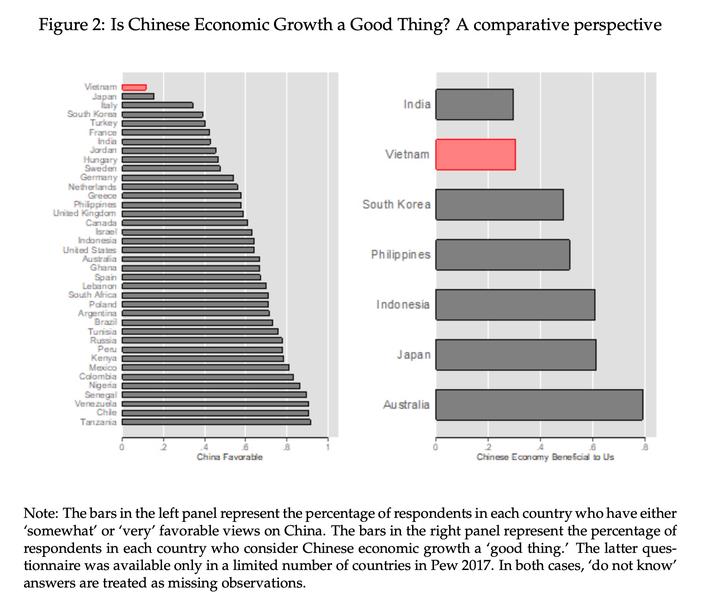
Abstract
A growing body of literature has recently emerged establishing that political socialization influences foreign policy preferences of the public. But the empirical domain of this literature has been confined largely to American foreign policy and whether and how this empirical regularity holds in a non-democratic, non-western setting is unknown. Filling this lacuna, this research note studies the Vietnamese public attitudes toward Chinese economic expansion. I argue that Vietnamese citizens who grew up amid Doi Moi (renovation) had a political socialization experience very different from that of the birth cohorts who immediately preceded them. I demonstrate that the traditional ‘socialist brotherhood’ rhetoric that used to moderate otherwise hostile public opinions about China became insignificant through the course of the reform. This abrupt change led to markedly divergent views between the pre- and post-Doi Moi birth groups on China. Using the data from the latest Pew Global Attitude Survey, I demonstrate that Doi Moi increased the Vietnamese public’s negative perception of Chinese economic expansion.